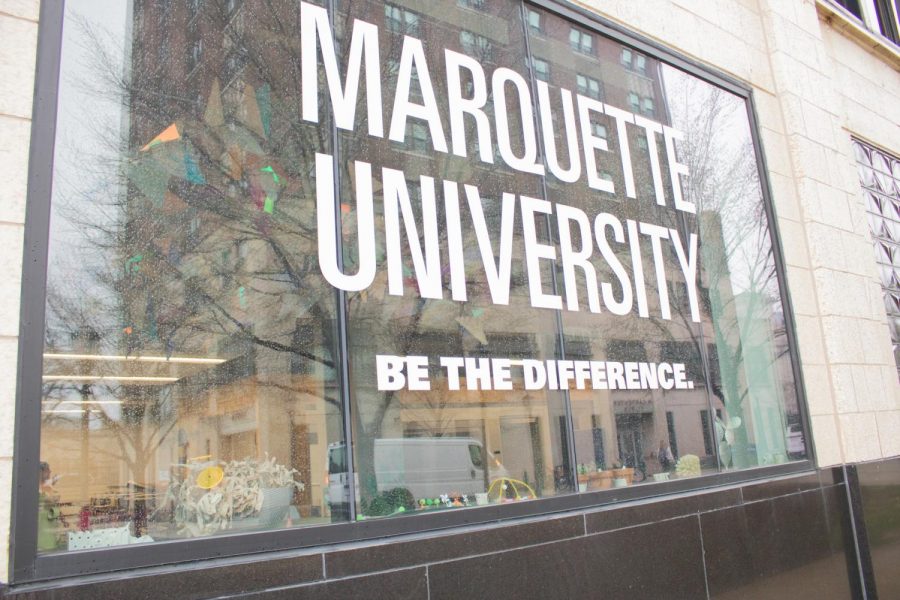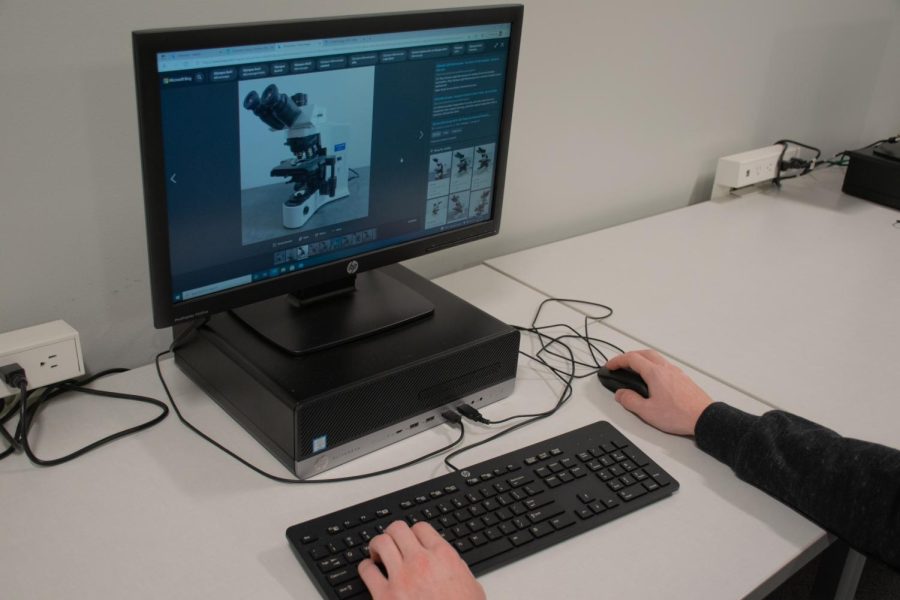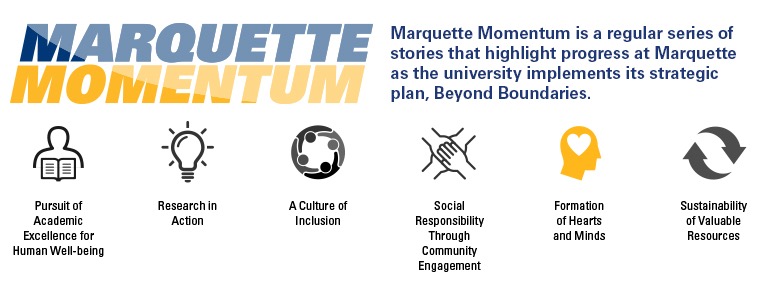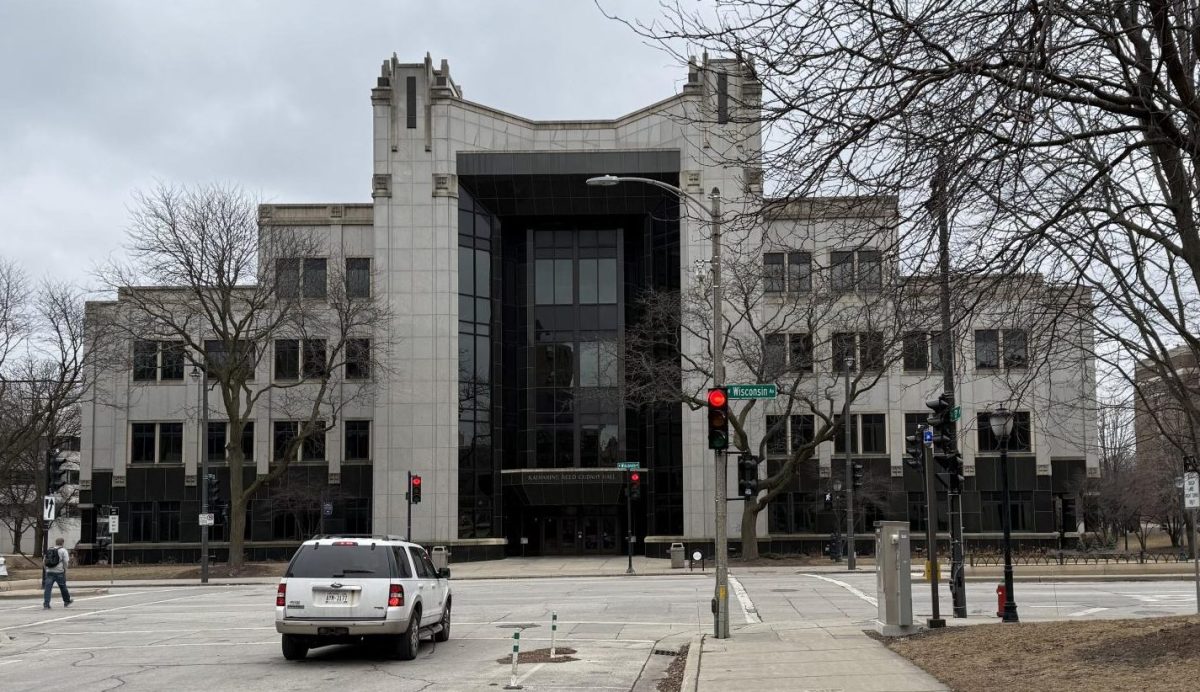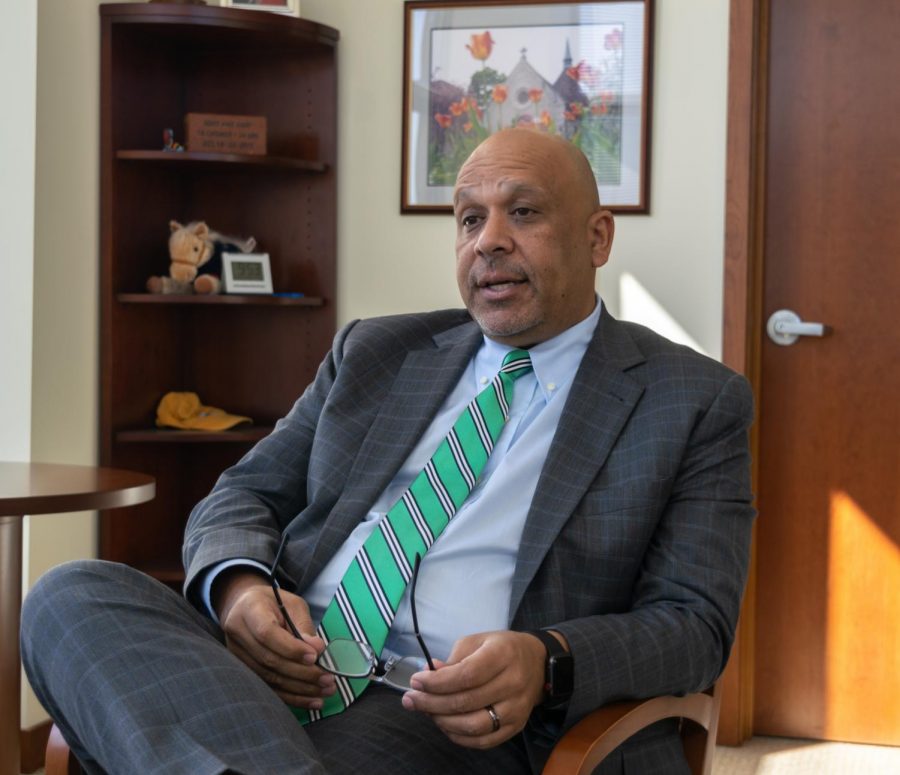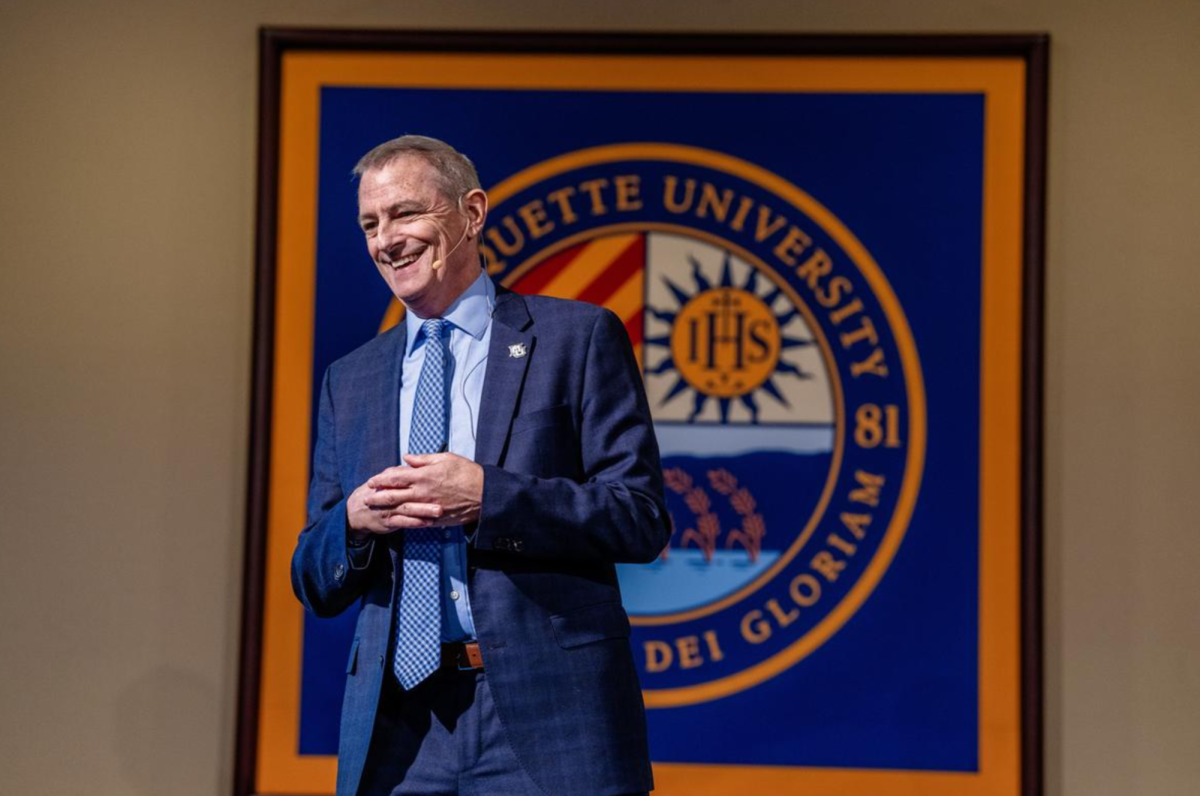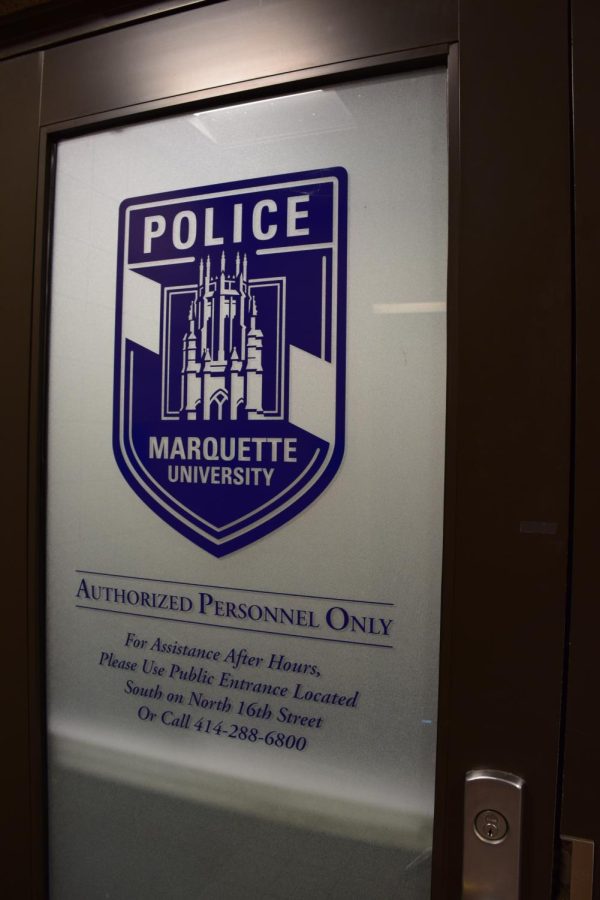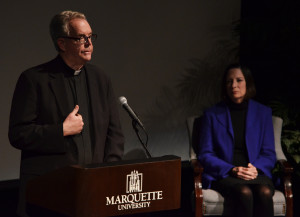
Interim University President the Rev. Robert A Wild and Margaret Callahan, interim provost and dean of the College of Nursing, delivered the State of the University Address Tuesday, hours before the pair answered student questions at a Marquette Student Government-led forum.
HIGHLIGHTS:
Wild on the strategic plan, Beyond Boundaries:
“We have a nice strategic plan that I think is very well done, but if we don’t have money to put toward it, nothing will happen.”
“I haven’t always been a fan of long term planning exercises, but I gotta say that the plan, it’s a framework of a plan really, I really liked it. I applauded it when they approved last May.”
Wild on reaffirmation of accreditation:
“Out of all of the accredation reports I’ve seen during my time here at Marquette, this one stands out as the best of them. It really represents and expresses its enthusiasm and praise for the work you are doing for our students.”
Wild on diversity:
“We need all of our students to experience marquette as their unviersity and thats not go gonna happen if the climate is hostile…drunkness on the part of student is no excuse.“
Wild on DPS police powers:
“What we got from the state was approval to turn public safety into a police force but there still are other conditions to meet, chief of which would be a formal agreement between DPS and MPD about respective duties and obligations. There is an issue of cost and this has to be looked at. We also need to hear from students, from faculty, the university community at large what the anxieties are and so people know and feel confident that this is a good thing for Marquette. We don’t have to do this. We have a good working relationship with the Milwaukee Police Department, but I think there are good reasons for doing it.”
Wild said the university downsizing last month was part of a larger effort to reduce costs at the university. He said Marquette added about 300 people over the last 10 years.
“Organizations just can’t continue to add personnel,” Wild said. “Eventually you have to take a moment and see whether we can operate more efficiently. We could manage this if we kept raising tuition at the levels we had been.”
When Marquette finished the last fiscal year in June the university had a surplus of about $700,000—less money than it takes to run one day of campus operations.
Callahan said the administration looked for areas where efficiencies could be made.
“The ability to be keep (tuition) increases low, to be able to have money to fund the things you all want, all the things the deans want, the colleges want for you, we need to be able to save these sorts of funds,” Callahan said.
Wild also noted that the $41.5 million raised since the fiscal year began in July is well ahead of both the year-to-date of the past five years, as well at the projected year-to-date $40.7 million.
He added that he believes the current fundraising pace puts Marquette on track to meet it’s target of $50 million for this fiscal year, which he believes would be in the top four for fundraising of Catholic universities in the country.
Christian Evans, a freshman in the College of Business Administration and MUSG senator, asked about the layoff of personnel who worked closely with students and advocated for them. He wanted to know how the university decided to cut these positions and why they happened before a new president came to campus.
“This is one of the reasons you have an interim president,” Wild said. “Do you really want a new president and that’s the first thing he or she would do? I think it’s something that is done more easily by someone like myself with the interim title.”
Multiple students, including Andrew Terenzio, a junior in the College of Business Administration, voiced their concerns over the termination of Jeff Snell, a professor who led Marquette’s social innovation initiative and was fired during the layoffs.
“Students are concerned about the university’s commitment to social innovation,” Terenzio said. “It is out hope that despite this layoff Marquette can continue to prioritize social innovation as it so closely aligns with our Jesuit mission at Marquette.”
Callahan said she hopes to see Marquette continue to grow its social innovation effects despite the loss.
“We are absolutely not walking away from social innovation on this campus,” Callahan said. “I want you to hear that loud and clear from me. As a matter of fact we are working on a way to make it more sustainable. We’re doing a lot of projects but now we need to take it to a different level.”
Wild took the State of the University opportunity to announce a $5 million gift from Kay and Ray Eckstein, the benefactors of Eckstein Hall, through their charitable trust. The Eckstein’s gift is being put toward construction on the new Jesuit Residence, which Wild announced in late January, adding to $7.5 million already dedicated to the project.
Callahan followed Wild’s announcement by talking about more donations the university received, helping individual colleges expand and take on new programs.
She specifically pointed to gifts made to the School of Dentistry, College of Health Sciences, College of Nursing, College of Engineering and College of Communication.
“Every single college is working on ideas not only to enhance student experience but grow revenue into the future,” Callahan said.
Callahan also touted the university’s comprehensive enrollment strategy, a report which she said would be finalized Tuesday. She said nine strategy teams, which started working in the mid-summer, are looking across the enrollment scheme, including analyzing transfer students, summer school and international students.
Callahan also added to the budget discussion, as she said deans and vice presidents will submit information for Fiscal Year 2015 by the end of the month to contribute to monetary planning.
Wild concluded by updating audience members on the progress of the presidential search committee, which he said cut down the number of applicants for the job from 1,200 to a “manageable number.” He said he expects the committee to select a candidate in the next few weeks.
Kyle Whelton, legislative vice president and a junior in the College of Arts & Sciences, asked about the possibility of students gaining representation on future search committees.
“I think it’s going to depend on the position because I do believe there are positions, and perhaps the provost is one of them that student representation could really be a good idea,” Wild said.
“It’s good MUSG keeps pushing it,” he continued.


